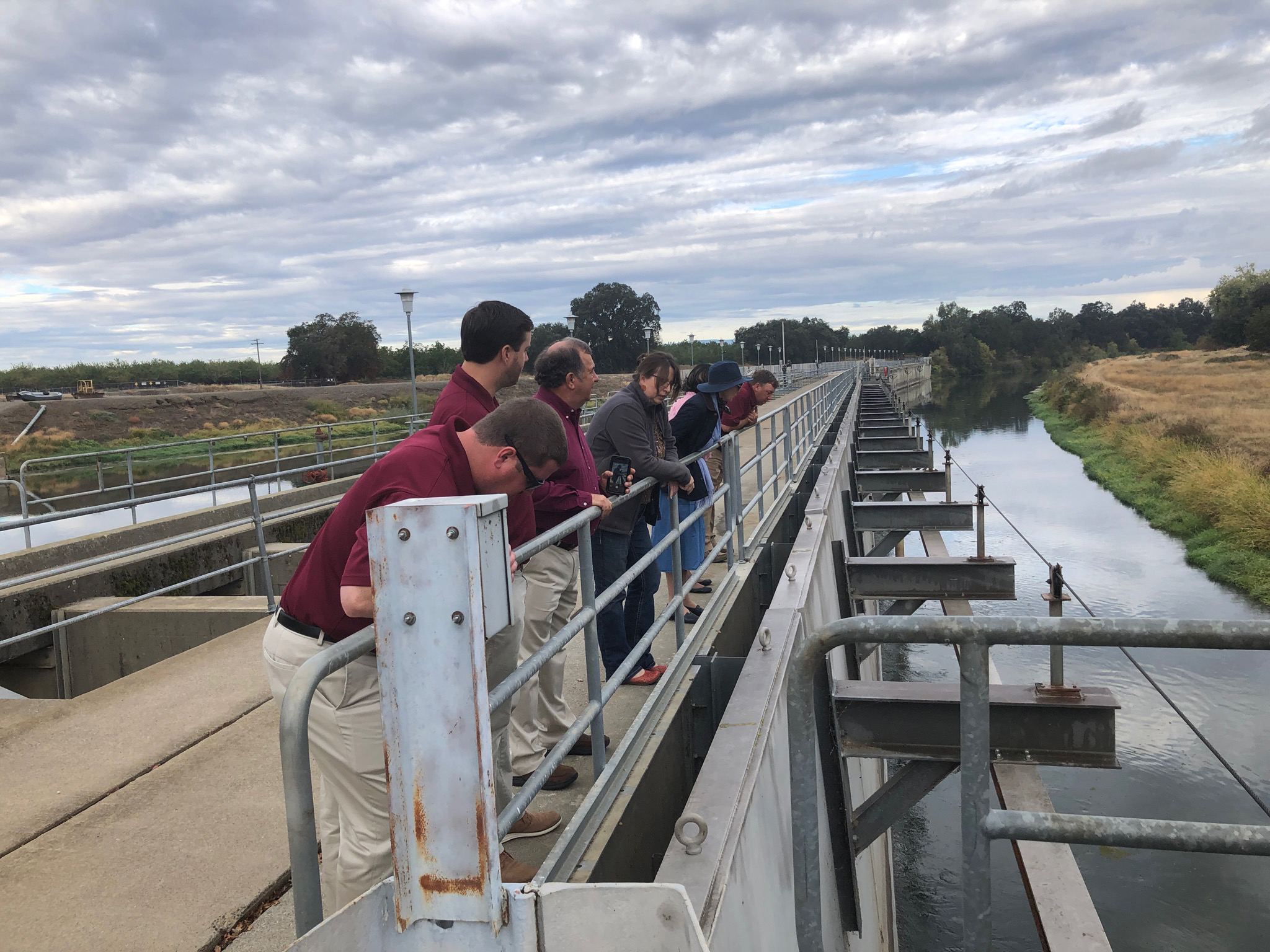 Management of California's water resources is a critical topic
Management of California's water resources is a critical topic
Nov 16, 2022
Members of the 2021-23 Rice Leadership Development Class visited California in late September and got a literal taste of the great variety of agricultural industries there that produce oysters, wine, nuts, lettuce, and, of course, rice. They were hosted by many leadership alumni for meals, and tours, and presentations on conservation, sustainability, rice research, and water management. Class member Christine Wylie is from California. She shared thoughts on how the ag community in her home state is dealing with challenging circumstances.
COLUSA, CA – If the true strength of a leader is measured in times of hardship and not just in times of ease, I can say it was an honor to meet and visit with so many successful leaders during the California Session of our Rice Leadership Class. In a year full of setbacks, it is strengthening to hear from a devoted group working hard to keep agriculture an option in our state. They opened their doors to us and shared so much of what they are going through this year, and their stories had quite an impact.
I've always found that when I've had the opportunity to get out of town, I come home and look at my surroundings in a different way. Traveling with the Leadership Class in California, I was able to experience something similar by being able to see my state through their eyes. So many conversations during the week began in committed debate about the differences in practices in the different regions but ended up being more about what we have common than what separates us.
At the top of everyone's mind, and the first topic of conversation is almost always the drought. The class was here during a season when so many crops should be at the height of their harvest, and it was startling for me, as someone who lives in the area and is aware of our current situation, to see so many fields empty and so few trucks on the roads.
In each community, every region, and with every crop, we could see the impact of the reduction of farmed acres. No one is left unaffected. The loss of acres means fewer jobs in all sectors. All of this is happening at a time where it is so difficult to keep talented people in agriculture. We all know rough years can happen in any industry, and those of us who farm know all too well to try to prepare for any future calamity, but the length and the severity of this drought is a strain I hope we do not have to endure much longer.
It wasn't just our fellow humans everyone was worried about when looking at unplanted fields and little water available for winter flooding – the birds who use the Pacific Flyway are also at risk. Our state has outgrown our water storage, and every living creature here is paying the price for it.
In a state as strict as California, we saw a lot of creative and progressive ways in which agriculture not only coexists with nature but helps it thrive. We learned of numerous ways our fellow producers are doing everything they can to help provide space for the birds to thrive in their traditional stopover on their migrations.
Times may be tough, but the hard work has not stopped. We met so many who are trying to find ways to strengthen the rice industry's development of new rice varieties, milling techniques, and conservation methods. One thing California does not have a shortage of is people willing to volunteer their land, time, and expertise to see the industry survive.
There is an unease and fear about what the future may bring here, but it was good to see that instead of gearing up for a fight, so many were instead encouraging everyone to be stronger in advocating and educating the public about all the wonderful things our industry does in the community, our local ecosystem, and for the world.
Next time you think of California, please pray for rain – preferably behind Mount Shasta – and for snow on the Sierras.